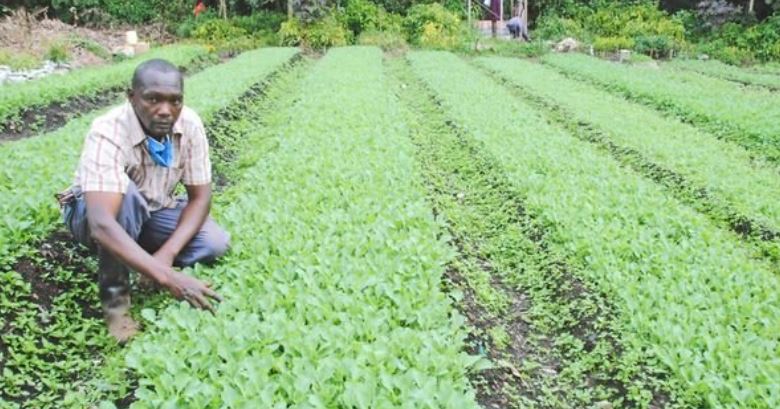 Samwel Karuma started a seedlings business in Elburgon, Nakuru County in 2008 and has never looked back since.
Samwel Karuma started a seedlings business in Elburgon, Nakuru County in 2008 and has never looked back since.
He spoke to ‘Seeds of Gold’ about his venture.
When did you start?
I began in 2008 after planting 10,000 sukuma wiki seedlings on eighth acre, spending Sh15,000 on seeds, labour and leasing of the land.
I broadcasted the seeds after making beds a metre apart. Despite all the enthusiasm I had, I ended up losing nearly all the plants.
Did you think of giving up?
It was disappointing but I realised the mistake I did, which was failing to manage the seeds well because of little knowledge.
I sought more information on production from Baraka Agricultural College in Molo, at agricultural shows, seminars and field days and soon, people started coming to me for seedlings.
The number of sales increased gradually and in the second year, I started making sales of up to 200 seedlings per day. I diversified to cabbages and expanded my acreage to about two.
How do you grow your seedlings?
To grow the seedlings, I start by preparing seedbeds and then mixing the soil with manure. I then broadcast the seeds and cover them with dry grass and let them germinate.
This takes at least one week. The seedlings must be watered well, weeds removed and sprayed in case of diseases or pests.
Demand for the seedlings is normally high during the rainy season. People have realised that certified seeds guarantee good harvest thus come for them.
Your farm is certified; how does one get their nursery certified by the Kenya Plant health inspectorate Service (Kephis)?
Before Kephis certifies your nursery, they visit your farm and verify if you grow seedlings in a suitable and safe area.
They also ensure that spacing, land preparation and water is nearby to water the seedlings.
Once they ascertain that you comply with their rules, you are given a certificate to show that you are compliant and are growing quality seedlings.
The benefit with certification is that it allows you to sell seeds even to organisations and at good prices because they are assured of quality.
I sell mostly to individual farmers and also groups at between Sh1 and Sh3 depending on the size. By having the certificate, this has enabled me to train other farmers on best practices of growing seedlings at a fee.
But besides the Kephis certificate, one also needs a licence from the Horticultural Crops Development Authority and the county government.
What challenges are in the business?
Poor quality seeds. Sometimes you buy seeds, plant and they don’t germinate, which means losses.
What is your advice to anyone seeking to get into such a business?
Wilfred Waithaka, Molo sub county agricultural officer: Seek knowledge at agricultural shows, seminars and field days and get other farmers. Have the skills , buy certified seeds and have your farm licensed or certified.
To beat off competition, have quality and quantity seedlings all the time. By being a regular supplier, clients believe that they would get the commodity each time they visit the farm, giving you an edge.






